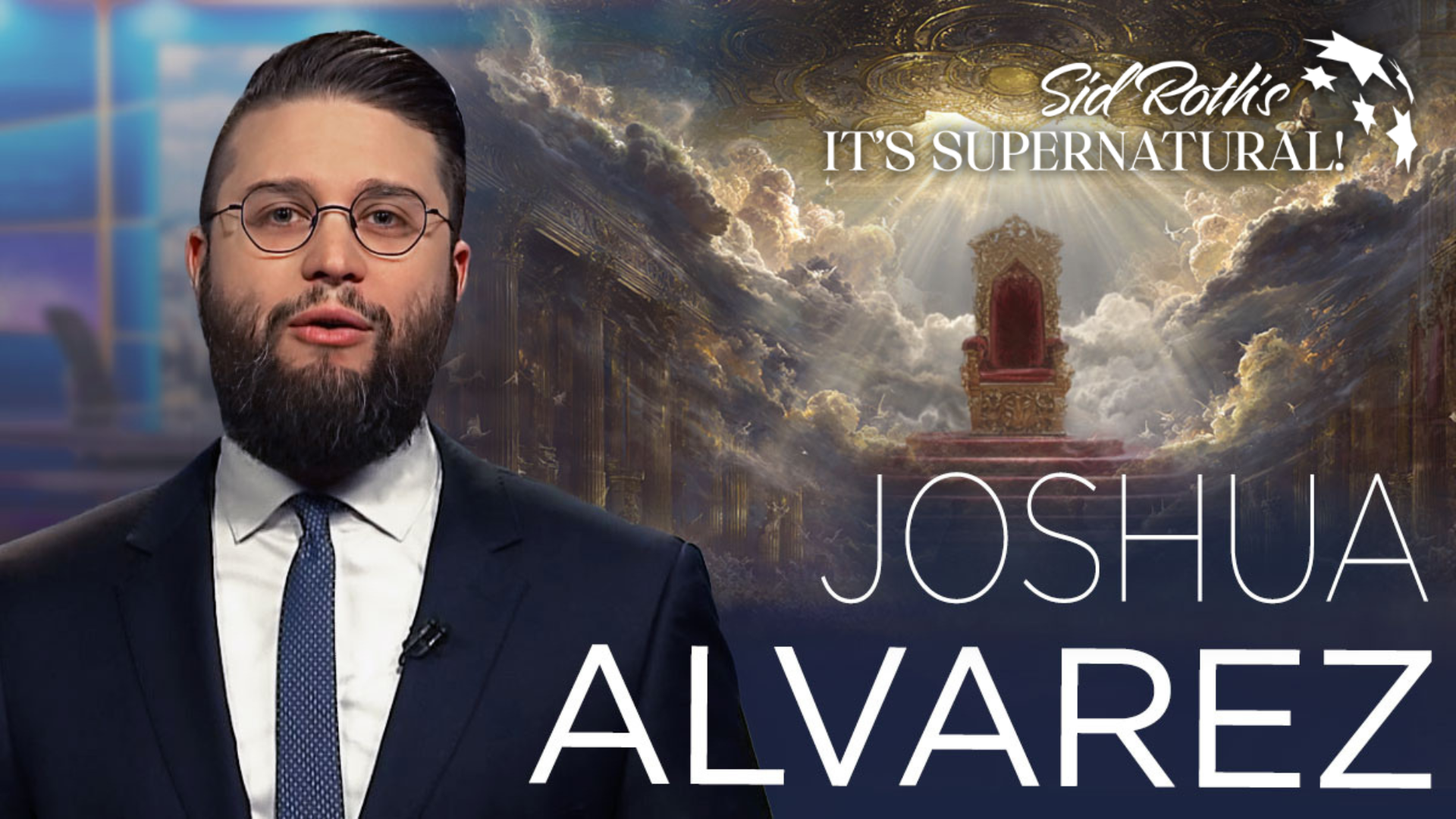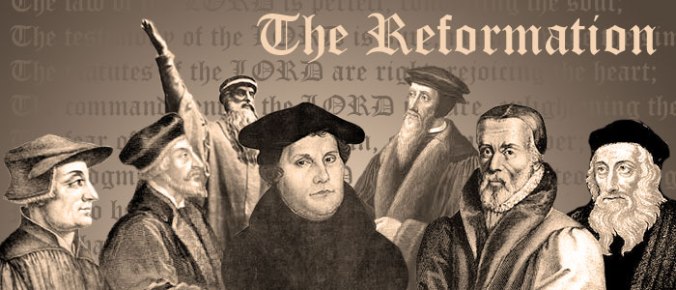By Joshua Alvarez
Historians agree that on this day, October 31, 1517, something changed. A movement was born that shook the very foundations of every institution in Western Europe, both religious and secular. Why is the Reformation a turning point in history? What was achieved? What is left of the reforms, if anything? Why is this important for us today? Those are some questions I want to address in this article.

On October 31st 2015, I felt led to share the following on my Facebook status: “Today while many are celebrating Halloween or All Saints Day (Catholic celebration of the “saints” – the “christianized” version of the pagan celebrations of the dead and evil spirits) I join those that are celebrating the very opposite. Today, 458 years ago, something happened that shook the very gates of hell and changed the whole course of history. Martin Luther nailed his ninety five theses to the doors of ALL SAINTS Church in Wittenberg and it sparked the Reformation out of superstition and demonic worship and the release of truth to the masses. Today marks the day that principalities and powers acting through a religious machine were defeated through the eternal Word of God. Even though I don’t agree with everything the reformers did, I recognize that because of them history changed for the better and blazed the way for us to continue in the spirit of Kingdom restoration. Happy Reformation Day!”
Here we are in the year 2017 and the five-hundred year celebration of the Reformation is upon us. What is it’s significance for today?”
 First, the Reformation is responsible for many freedoms we cherish as a democracy today, some of which include freedom of speech, freedom of the press, freedom of religion, and freedom to self govern. Before the spark of the Reformation, in the time frame that history has aptly called the “dark ages,” people were seen as subordinates of kings and clergy without “God given rights.” The Founding Fathers of America passionately defended these “God given rights” because they believed in the breakthroughs of the Reformation. Therefore, a large part of what we take for granted as a society today we enjoy because of the voices of dissent that called for freedom five hundred years ago.
First, the Reformation is responsible for many freedoms we cherish as a democracy today, some of which include freedom of speech, freedom of the press, freedom of religion, and freedom to self govern. Before the spark of the Reformation, in the time frame that history has aptly called the “dark ages,” people were seen as subordinates of kings and clergy without “God given rights.” The Founding Fathers of America passionately defended these “God given rights” because they believed in the breakthroughs of the Reformation. Therefore, a large part of what we take for granted as a society today we enjoy because of the voices of dissent that called for freedom five hundred years ago.

Secondly, and for me even more importantly, is the spiritual shaking that the Reformation brought about. This movement brought down both principalities and human idols that carried great illegitimate authority over God’s word and God’s people. These power structures had brought about much spiritual darkness for centuries that kept people in bondage to belief systems that were contrary to the Gospel.
The Reformation was a turning point back to truth that rested upon these foundational pillars:
Grace Alone
Faith Alone
Scripture Alone
Christ Alone
For God’s Glory Alone
These were revolutionary concepts in a day when people were told how to believe and what to believe. Now suddenly, together with the availability of the printing press, people could go back to the Bible (something that had been prohibited to the common people for millennia) and come to their own free thought of how God wanted them to live.

God used men like Martin Luther, John Calvin, Huldrych Zwingli, John Knox, William Tyndale and many more to bring down the giants of superstition and lies to bring a move of restoration back to the church. Do I agree with everything these men did? Absolutely not! For example, I wept as I read Luther’s “On the Jews and their Lies” for the absolute hatred he showed my Jewish brothers and sisters.* Those same hate-filled words became part of the foundation for Hitler’s “cleansing.” So, at times, I have disagreed with their doctrine, tactics and sometimes even their motives. However, in reading much material from this time period many times I have been blessed. I realize that they were swinging the pendulum from one extreme to another extreme and, at times, they swung the plumb line of truth too far the other direction and got stuck there. Despite these extremes, my admiration for these men and women remains because they had such a great boldness in a day and time when their stand could have meant sure death.
 The Reformation opened the door for the beginning of restoration of the church back to God’s intent. It wasn’t an end unto itself, but was just the beginning of restoring truths back to what it was originally designed to be. The Reformation opened the way for men and movements to affect the church to the core. Among them were the Holiness, Missionary and Discipleship movements of the 19th century. During the 20th century we saw the Holy Spirit baptism, Healing, Soul Winning, Prophetic and Jewish Roots movements.
The Reformation opened the door for the beginning of restoration of the church back to God’s intent. It wasn’t an end unto itself, but was just the beginning of restoring truths back to what it was originally designed to be. The Reformation opened the way for men and movements to affect the church to the core. Among them were the Holiness, Missionary and Discipleship movements of the 19th century. During the 20th century we saw the Holy Spirit baptism, Healing, Soul Winning, Prophetic and Jewish Roots movements.
The Reformation opened the way for restoration. Now, each of us has a part to play in carrying forward the torch of freedom and truth to our generation and to pass it on to the next generation. I believe that the real challenge that the Reformation paints for us is that the need for reform isn’t finished. God has much more that He wants to do. The spirit of reformation must be upon this generation of believers to return and boldly stand for “the faith once delivered to the saints.”
 Ultimately, the Reformation wasn’t about a particular set of people, but the raising up of every believer to their divine calling and value as citizens of the Kingdom with all of its rights and privileges, the priesthood of all believers. In this we are yet to achieve. Since that time more believers have been activated into their calling as revivalists, but not all. God’s desire is for every member of the body to be mobilized to do their function. This is the ultimate reform that needs to be achieved! Just like Moses said in Numbers 11:29, “I wish that all the LORD’s people were prophets and that the LORD would put his Spirit upon them all!
Ultimately, the Reformation wasn’t about a particular set of people, but the raising up of every believer to their divine calling and value as citizens of the Kingdom with all of its rights and privileges, the priesthood of all believers. In this we are yet to achieve. Since that time more believers have been activated into their calling as revivalists, but not all. God’s desire is for every member of the body to be mobilized to do their function. This is the ultimate reform that needs to be achieved! Just like Moses said in Numbers 11:29, “I wish that all the LORD’s people were prophets and that the LORD would put his Spirit upon them all!
 Together, let’s celebrate the successes that the Reformation initiated while at the same time carry the banner of truth towards the goal of restoring all Biblical truth. Let every member of the body of Christ be mobilized with the aim of presenting to the world a bride “without spot or wrinkle,” that the gospel of the Kingdom would touch the masses and the church would experience an unparalleled harvest of souls!
Together, let’s celebrate the successes that the Reformation initiated while at the same time carry the banner of truth towards the goal of restoring all Biblical truth. Let every member of the body of Christ be mobilized with the aim of presenting to the world a bride “without spot or wrinkle,” that the gospel of the Kingdom would touch the masses and the church would experience an unparalleled harvest of souls!
Thank you for reading this article, please share it if you have been blessed!
*Note: Martin Luther’s original opinion on the Jewish people was very positive as written in his 1523 essay That Jesus Christ Was Born a Jew.
“If I had been a Jew and had seen such dolts and blockheads govern and teach the Christian faith, I would sooner have become a hog than a Christian. They have dealt with the Jews as if they were dogs rather than human beings; they have done little else than deride them and seize their property. When they baptize them they show them nothing of Christian doctrine or life, but only subject them to popishness and monkery… If the apostles, who also were Jews, had dealt with us Gentiles as we Gentiles deal with the Jews, there would never have been a Christian among the Gentiles … When we are inclined to boast of our position [as Christians] we should remember that we are but Gentiles, while the Jews are of the lineage of Christ. We are aliens and in-laws; they are blood relatives, cousins, and brothers of our Lord. Therefore, if one is to boast of flesh and blood the Jews are actually nearer to Christ than we are… If we really want to help them, we must be guided in our dealings with them not by papal law but by the law of Christian love. We must receive them cordially, and permit them to trade and work with us, that they may have occasion and opportunity to associate with us, hear our Christian teaching, and witness our Christian life. If some of them should prove stiff-necked, what of it? After all, we ourselves are not all good Christians either.”
Quick thanks to Leslie Murphy for help in editing this article.










 First, the Reformation is responsible for many freedoms we cherish as a democracy today, some of which include freedom of speech, freedom of the press, freedom of religion, and freedom to self govern. Before the spark of the Reformation, in the time frame that history has aptly called the “dark ages,” people were seen as subordinates of kings and clergy without “God given rights.” The Founding Fathers of America passionately defended these “God given rights” because they believed in the breakthroughs of the Reformation. Therefore, a large part of what we take for granted as a society today we enjoy because of the voices of dissent that called for freedom five hundred years ago.
First, the Reformation is responsible for many freedoms we cherish as a democracy today, some of which include freedom of speech, freedom of the press, freedom of religion, and freedom to self govern. Before the spark of the Reformation, in the time frame that history has aptly called the “dark ages,” people were seen as subordinates of kings and clergy without “God given rights.” The Founding Fathers of America passionately defended these “God given rights” because they believed in the breakthroughs of the Reformation. Therefore, a large part of what we take for granted as a society today we enjoy because of the voices of dissent that called for freedom five hundred years ago.

 The Reformation opened the door for the beginning of restoration of the church back to God’s intent. It wasn’t an end unto itself, but was just the beginning of restoring truths back to what it was originally designed to be. The Reformation opened the way for men and movements to affect the church to the core. Among them were the Holiness, Missionary and Discipleship movements of the 19th century. During the 20th century we saw the Holy Spirit baptism, Healing, Soul Winning, Prophetic and Jewish Roots movements.
The Reformation opened the door for the beginning of restoration of the church back to God’s intent. It wasn’t an end unto itself, but was just the beginning of restoring truths back to what it was originally designed to be. The Reformation opened the way for men and movements to affect the church to the core. Among them were the Holiness, Missionary and Discipleship movements of the 19th century. During the 20th century we saw the Holy Spirit baptism, Healing, Soul Winning, Prophetic and Jewish Roots movements. Ultimately, the Reformation wasn’t about a particular set of people, but the raising up of every believer to their divine calling and value as citizens of the Kingdom with all of its rights and privileges, the priesthood of all believers. In this we are yet to achieve. Since that time more believers have been activated into their calling as revivalists, but not all. God’s desire is for every member of the body to be mobilized to do their function. This is the ultimate reform that needs to be achieved! Just like Moses said in Numbers 11:29, “I wish that all the LORD’s people were prophets and that the LORD would put his Spirit upon them all!
Ultimately, the Reformation wasn’t about a particular set of people, but the raising up of every believer to their divine calling and value as citizens of the Kingdom with all of its rights and privileges, the priesthood of all believers. In this we are yet to achieve. Since that time more believers have been activated into their calling as revivalists, but not all. God’s desire is for every member of the body to be mobilized to do their function. This is the ultimate reform that needs to be achieved! Just like Moses said in Numbers 11:29, “I wish that all the LORD’s people were prophets and that the LORD would put his Spirit upon them all! Together, let’s celebrate the successes that the Reformation initiated while at the same time carry the banner of truth towards the goal of restoring all Biblical truth. Let every member of the body of Christ be mobilized with the aim of presenting to the world a bride “without spot or wrinkle,” that the gospel of the Kingdom would touch the masses and the church would experience an unparalleled harvest of souls!
Together, let’s celebrate the successes that the Reformation initiated while at the same time carry the banner of truth towards the goal of restoring all Biblical truth. Let every member of the body of Christ be mobilized with the aim of presenting to the world a bride “without spot or wrinkle,” that the gospel of the Kingdom would touch the masses and the church would experience an unparalleled harvest of souls!